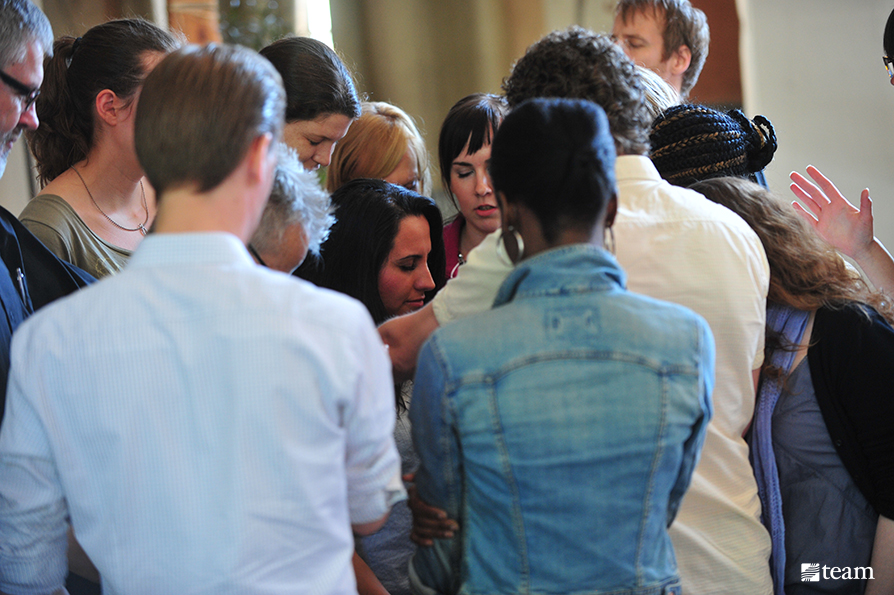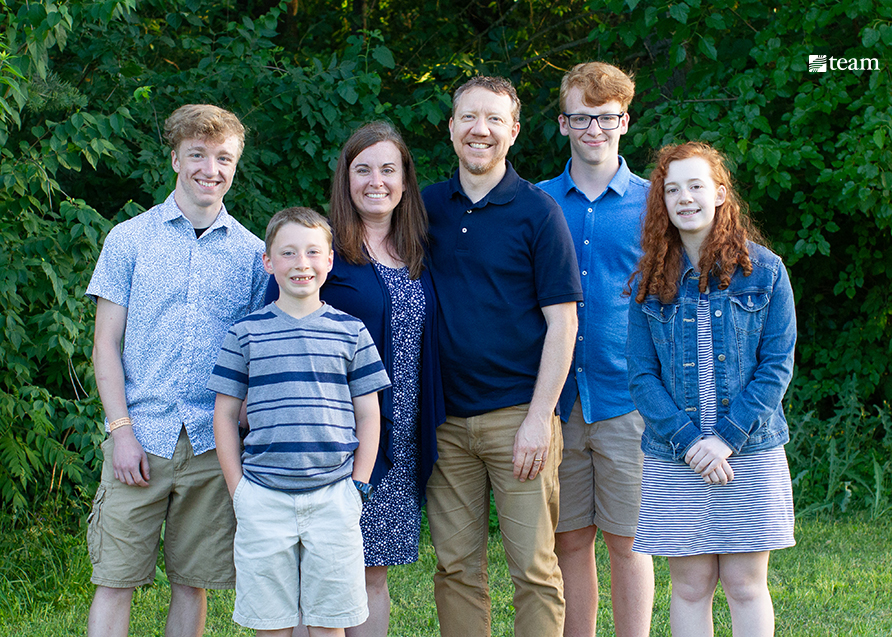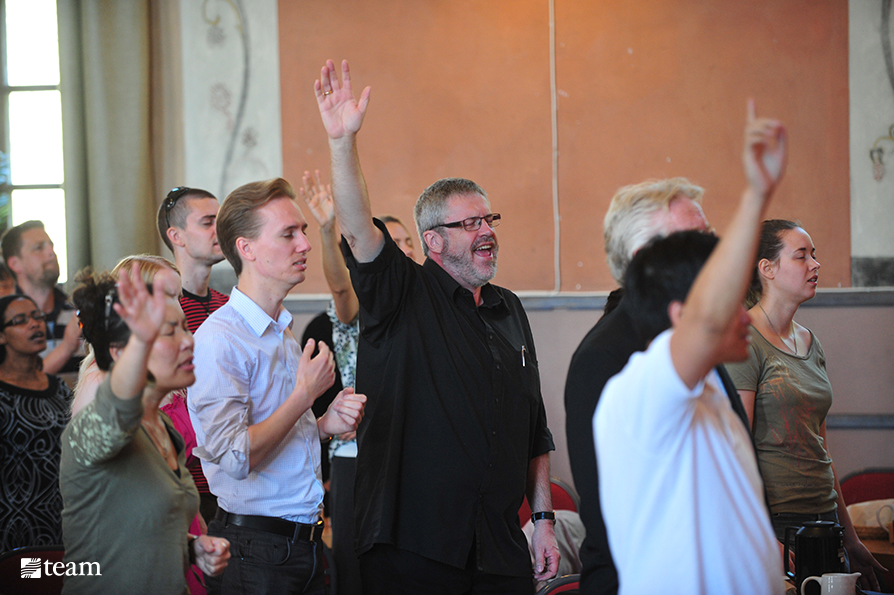
Becoming a Missionary
Questions to Ask a Missions Organization
May 26, 2022
by Suzanne Pearson

If you’re considering becoming a missionary, one of the first steps you’ll take is choosing what sending organization to partner with. “Why do I need a missions organization?” you may ask. This is a big question that a missions coach can answer best. But the short version is that missions organizations like TEAM will train and equip you to serve, support you each step of the way and provide an infrastructure that will maximize your effectiveness in missions.
So then, the next question is obvious. Which organization do I choose? This is another complex question that we can talk through with you, but the fact is that there are lots of great organizations out there. The key is finding the one that is the right fit for YOU. The best way to get that answer is to have a conversation with the missions coach of each organization and ask the right questions. With that in mind, here are 5 Key Questions to Ask a Missions Organization.
1. What are the beliefs and values of the organization?
Finding out what doctrinal beliefs and values drive the organization is essential before you go any further in the process. This starts with reading their Statement of Faith and Mission/Vision statements but it doesn’t end there. Ask the coach to elaborate on those important written pieces and how they are applied to the mission process. Ask what the organization’s core values are when it comes to preparing and deploying missionaries as well as caring for them once they are in the field. Make sure that your beliefs and values align theologically and doctrinally with the organization and that you have the same or at least similar goals and expectations.
Anna Price, TEAM’s Director of Mobilization, says it’s important to write down your expectations about what the organization would need to do to help you thrive in the mission field. “What do you need to be successful?” asks Anna. “And if ‘expectations’ are too hard to answer at this point, write down your fears…what are the things that would make you not thrive in missions and how will you need help to overcome them?” Then discuss those thoughts with the organization to see how they can meet those needs.
2. What types of opportunities do they offer?
Most likely at this point you’ve got some ideas in mind as to the region(s) you’re interested in and the length of time you’re looking for (long-term vs. short-term). You’ve also probably thought about the types of ministry such as teaching, church planting or medical missions. Another preference you may have is a vocational model where you have a paying job overseas that also offers missional opportunities. All these choices and preferences are important when you are considering an organization because some may not specialize or even offer what you are looking for. So if your heart is set on a particular region, ministry or vocational model, you’ll want to ask what’s offered by that organization and what their level of experience is within those parameters.
On the other hand, maybe you’re still undecided and open to different opportunities that the Lord puts in front of you. If that’s the case, you’ll want to ask what’s offered so you can see how much bandwidth there is for you to change course as you home in on your interests and passions.
Tracy Culley, Mobilization Coordinator at South America Mission offers great advice – start with where God has you, and see what organization offers the next natural step in that progression. “What are your gifts and passions? What is God currently teaching you?” asks Tracy. Sharing those thoughts with an organization helps you determine if it’s a good fit.
Rachel Pauwels, Regional Missions Coach for SEND encourages prospective missionaries to think about what they want their work to look like and then talk with the organization about that vision. “Look for an organization that aligns with those desires that you have for your time in the field,” says Rachel.
3. What type of training and equipping do they provide before you go?
The goal of any healthy organization is to send global workers that are as prepared as possible for the field. Ask the organization what the training process looks like. What are the steps and how does each one accomplish the goal? What does the timeline usually look like from start to finish? How does their fundraising system work and how does the organization equip you to raise support?
Kyler Keith, Director of Recruitment and Mobilization at Crossworld adds that it’s also important to ask about training related to the specific type of ministry work you plan to undertake. “It’s good to know if [the organization] has similar field workers with those skills.” Says Kyler. “Are there people that you can mentor you with certain things or are you going to be a pioneer?”

When it comes to missions, connections to both a sending and a receiving church are key.
4. What is the role of the local church (at both ends of the equation)?
The local church plays a vital role in the life of a missionary. This is true on the front end with your “sending church” which supports you and prays for you from “home.” But plugging into and partnering with the local church in the area where you are serving is important as well. One of the staples of TEAM’s philosophy is that cross-cultural missions thrive best when local churches and local ministry leaders are mobilized to reach their own ministry goals; missionaries then go as partners to come alongside them in that work.
As you are talking with organizations, it’s critical to ask how they interact with and find synergy with local churches on the sending side as well as the receiving side (in the field).
“An agency that’s able to work with you and your church’s processes and expertise is really important,” says Anna. “I think it’s key to work with an agency and ask, ‘Hey, what would this process look like with you? How can you accept our expertise…and how can we also submit to your expertise?’”
5. How do they care for and support their missionaries and missionary families for the long haul?
Do you remember the scene in The Martian when Matt Damon wakes up and realizes he’s been left behind on Mars? Well, mission work shouldn’t feel like help is 140 million miles away! Your missions organization should help you and your family get settled and then keep tabs on how you’re doing. If you have children, the organization can not only help you find schools but also provide you with a myriad of great resources and support for missionary kids, also known as third-culture kids. Ask what those processes and programs look like.
It’s also important to ask what the organization does to care for your ongoing spiritual and emotional health. What do they do to help you avoid burnout and compassion fatigue? What opportunities for ongoing learning and development do they provide?
Lastly, ask what’s available to you and your family as far as medical and other types of benefits.
Anna mentions an important distinction to make among sending agencies. “There are two big buckets [when it comes to sending organizations],” she explains. “There are umbrella agencies that really are kind of just a place for you to do your [fundraising]. And then there are full-service agencies.”
TEAM, along with SEND, South America Mission and Crossworld are all full-service agencies. Each has robust member care as well as learning and development. These organizations understand that we are not competitors but partners, collaborating to fulfill the Great Commission. For this reason, Therefore Alliance was formed by the four agencies to pool our resources and maximize effectiveness for the Gospel. If you’d like to hear more from all four of these agencies, check out this recent conversation, How to Choose a Missions Agency.
Next Steps
Maybe you’re not sure if the mission field is right for you – or you can’t even go anytime soon. Kyler says it’s still a great idea to talk to a missions coach. “You may be years away from wanting to go or not even sure that you want to go and that’s totally fine,” he says. “The conversation can just be like, ‘here are some resources on why you should consider going overseas.’ Or ‘Let’s meet again in a year after you’re graduated from college and then we can talk about what opportunities we have.’ All [of these four organizations] would love to have that initial conversation with you so they can better understand how to come alongside you and to pray for you.”
Related articles


